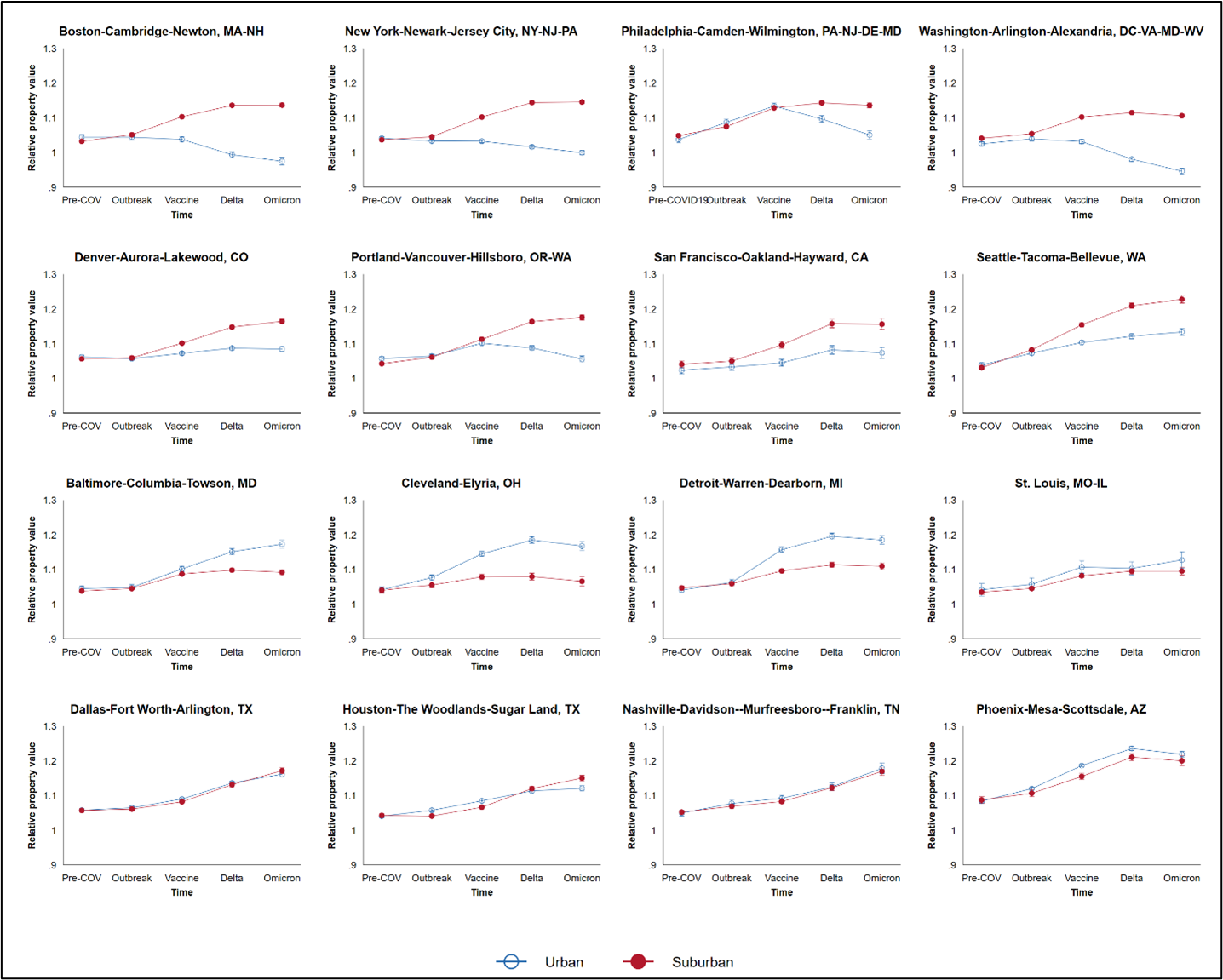@Cory J Thornton at risk of being wrong, I'd say we are at the middle of the beginning of a paradigm shift.
For generations, hell millennia, things operated on a simple system that there is some geographic feature, somewhere, that brings many together in 1 spot, that brings more, a city builds, grows, and get's to a size that a kind of "gravity" is made putting people and industry in a geographic "orbit" of that market center.
But now....
COVID lockdown "crashed the system" so to say. And at exact same time forced the use of an alternative one, remote working. Dislocated staffing. And, very key, it forced it's use for an enduring time. So people and employers not only had to use it, they had to integrate it's use, get good at it, accept it into the fold.
Than at same time we get massive social upheaval, which given population density was focused in those more dense populous areas. Social unrest, riots, lawlessness. Add to this all the social unrest and upheaval in school systems which again most prevalent in populous dense areas....
It's a "perfect storm" of factors all hitting together.
Where a new paradigm seems to be coming to the front that "good old family living" is to be found in the satellite areas, a step beyond the traditional suburbs. That the "work life balance" is almost directly translating as a remote whatever working situation.
Gov agencies keep integrating more and more with this. And the private sector fight against remote, that was a fart in the breeze for most part. People WANT remote working lifestyles.
And this change of primary income requirements becoming transient, opens up a whole different world of how people locate themselves.
I think we are very early in it. I think we only saw the first wave from this, and are now into consolidation and normalization, from which sustained growth will next come, if not already is here in early days of it.
Where high speed internet exists, is now a viable living potential, and that's a LOT of places.
before, there was a sizable cost to where one geographically located. We didn't just change that, we flipped it on it's head because if you can do a remote CA tech job, man-alive your going to be rewarded if live in a say a rural SD town. Like Living in South Africa but earning in dollars, currency conversion rich.
This is very early to say but yes, I think one of the next "gold rush's" for investors is in the development/re-development of these communities. I don't know what to call them other than maybe a "Z-market" because it's really driving in power by the younger generations who are saying f-this to living by conventional "old" rules of things.
MSA's still hold a gravity, but it's not what it once was, there is this force that now exists immune to such geographic gravity, if not working in reverse polarity to it.
I don't see it changing back. I think we at the beginning. Remember when internet first came out (I just dated myself didn't I, lol). There was this big rush, then got real quiet. It's like the first "cool" rush of things, but then it took time for integration. And it was years, YEARS before it started getting to be something other then a novelty. And it's like I woke up one day and out of nowhere the internet was a requirement.... I see remote work going exact same way. And with it, housing location choice.
Good schools, good internet, good food, good prices. I think that's the magic 4 factors. I know good food seems a bit weird, I think so, but it's what I see repeatedly in these "z-markets" forming. Apparently food is a really big deal to younger generations, I'm not sure they know stoves are for cooking not gadget storage, lol.









